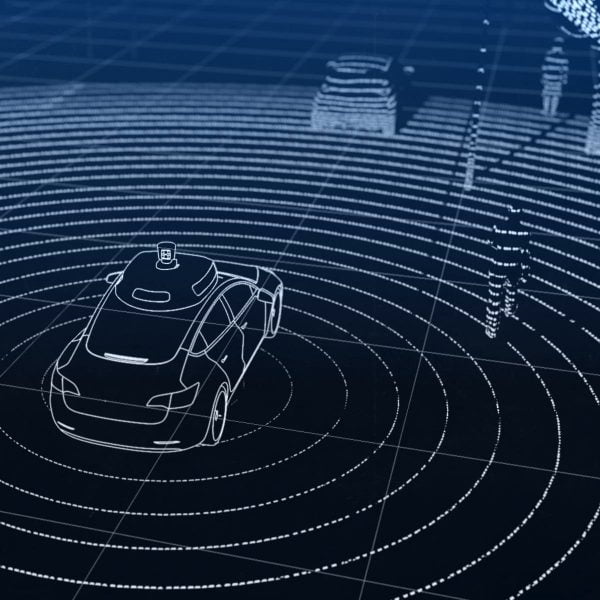
State Estimation and Localization for Self-Driving Cars
FREE
Welcome to State Estimation and Localization for Self–Driving Cars, the second course in University of Toronto’s Self–Driving Cars Specialization. We recommend you take the first course in the Specialization prior to taking this course. This course will introduce you to the different sensors and how we can use them for state estimation and localization in a self–driving car. By the end of this course, you will be able to: – Understand the key methods for parameter and state estimation used for autonomous driving, such as the method of least–squares – Develop a model for typical vehicle localization sensors, including GPS and IMUs – Apply extended and unscented Kalman Filters to a vehicle state estimation problem – Understand LIDAR scan matching and the Iterative Closest Point algorithm – Apply these tools to fuse multiple sensor streams into a single state estimate for a self–driving car For the final project in this course, you will implement the Error–State Extended Kalman Filter (ES–EKF) to localize a vehicle using data from the CARLA simulator. This is an advanced course, intended for learners with a background in mechanical engineering, computer and electrical engineering, or robotics. To succeed in this course, you should have programming experience in Python …
Instructor Details
Courses : 1
Specification: State Estimation and Localization for Self-Driving Cars
|
38 reviews for State Estimation and Localization for Self-Driving Cars
Add a review Cancel reply
This site uses Akismet to reduce spam. Learn how your comment data is processed.
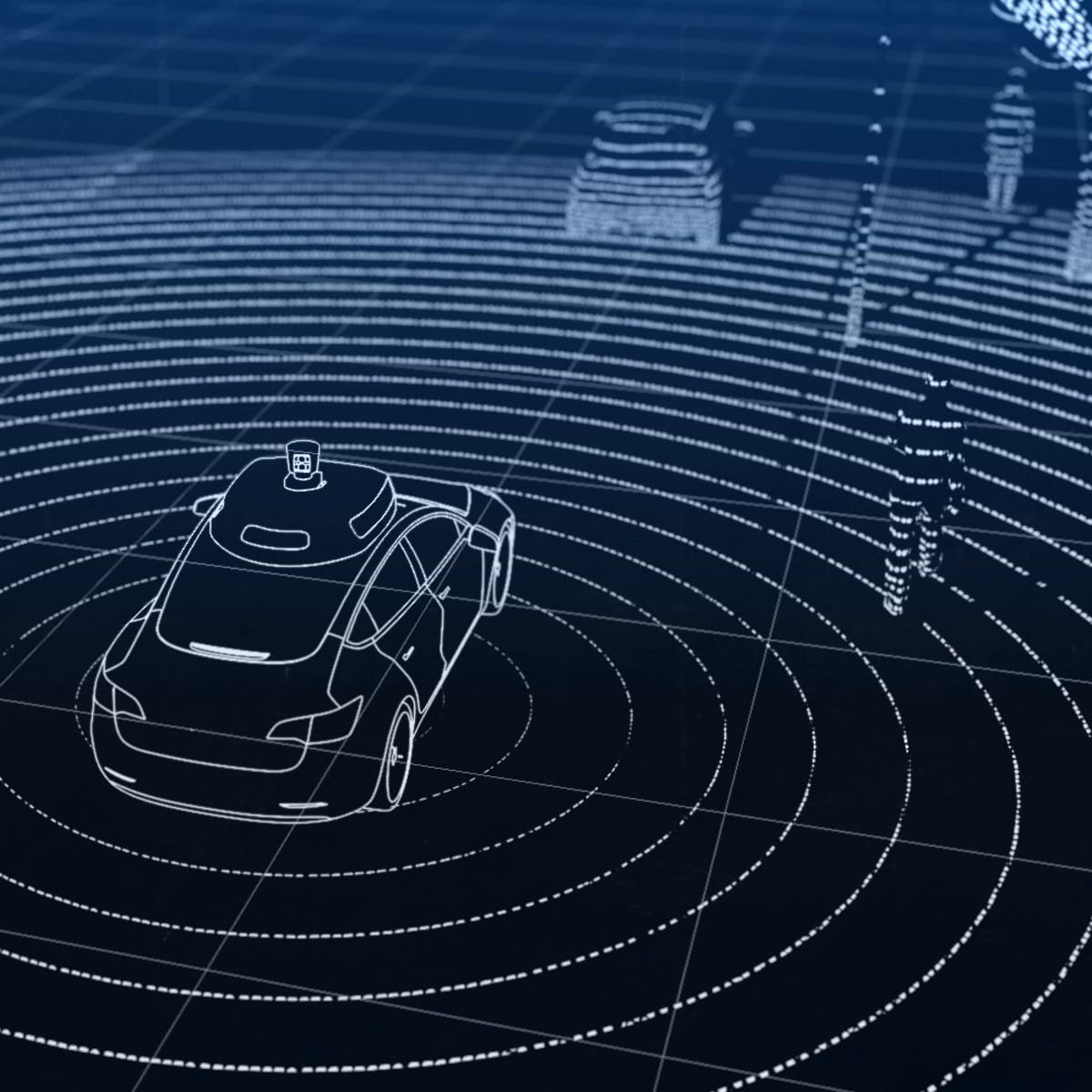
| Price | Free |
|---|---|
| Provider | |
| Duration | 23 hours |
| Year | 2019 |
| Level | Expert |
| Language | English |
| Certificate | Yes |
| Quizzes | No |

FREE

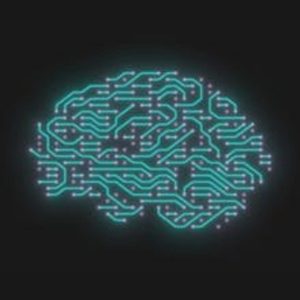
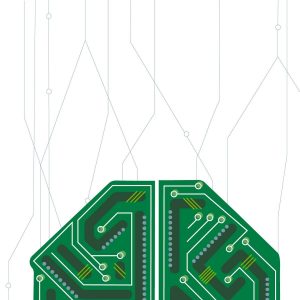

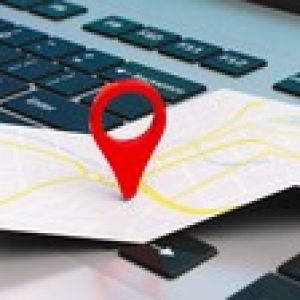
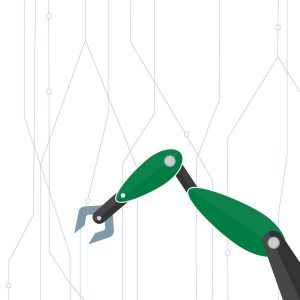
Levente K –
Sometimes hard, but still pretty much fun to solve all the problems 🙂
Yusen C –
Could we use C++ to program the projects? And also, in most assignments, please make sure every requirements and additional information are CORRECT and CLEAR! Now, some of them are REALLY MISLEADING!
Yulia M –
The content of the course is great, very useful and applicable ! The lectures are well told, animations are brilliant. I rate this course as 4 stars due to a low feedback activity from the teaching staff.
Maksym B –
The course has very advanced material and I value this course a lot. However I am very confused at some key concepts and didn’t understand many details conceptually. For example it is not clear what is the difference between EKF and ES EKF. Also, for the final project the formulas have been given. I implemented the project using the formulas, but I didn’t understand deeply enough the meaning of those formulas. For example what does Kalman Gain represent. Maybe the topic is just so advanced, or maybe I should be reading more resources outside the lectures. But I finished the course with the feeling that I have a lot to learn in the space of localization and state estimation.
James L –
This is a fast paced course on state estimation. ES Kalman Filter is the focus of the final project. Lectures cover basics of Kalman filter very thoroughly. You need to spend quite some time to sort out complexity to finish the final project, yet the efforts are well spent. You will only graph the fundamentals after hard projects. Overall, a very well organized and executed course. Highly recommended.
River L –
It provides a hand on experience in implementing part of the localization process…interesting stuff!! Kind of time consuming so be prepared.
Guruprasad M H –
one of best experiences. But the course requires a steep learning curve. The discussion forums are really helpful
Davide C –
Finishing this course was quite challenging, but I did it. Thanks a lot to the professors for the clear explanations.
Jon H –
There is no support for this class The forums are almost useless and no teacher or staff ever answers anything on them The lectures are pure fluff and hand waving, no meat and no details The projects are extremely difficult and there is no lessons to cover material needed for the projects Would not recommend unless you want to basically learn on your own Too much work BTW I did get 100%.
Rade –
Very dry lectures! Quiz automated grader buggy and not working at times. Example: not well defined python environment for the quiz in module 4. A grader expects a certain format that you have to guess. But to guess you need to submit the quiz in order to see if you satisfied the grader. So you can do that 5 times every our. A lot of time spent on satisfying the grader format that learning material. The reason I am realty trying to stay in the class is because I am very interested in the subject but the execution of this class is a disaster!
Joachim S –
I was impressed about the different methods available to do state estimation. The content was well presented (all slides shown are available as a PDF download) although in a quite compressed fashion. As in course 1 I would have preferred much longer videos so that more details of the different models could have been highlighted. Personally I was amazed about concepts like the Quarternion that I have never heart about before. A great plus from my perspective is that like in course 1 every lesson has a list of further articles to read and in order to really comprehend the stuff presented I recommend in doing a deep dive into these articles. Personally I found the coding assignments really demanding and as a side note I would have appreciated a little bit more presence of the teaching stuff to clarify. Currently the impression is that besides a monthly post in the discussion forum the teaching stuff is not visible which is really sad as I think this whole specialization to be prime content. Unfortunately the locked video that will be shown to you when having completed the assignment is only a white screen and you are not able to follow the explanations the professor is providing. I would really appreciate if the invisible slides would be available for download but this is not the case. All in all I am a little bit mixed about the course as for example particle filters are just mentioned in one video but not explained as all the various types of Kalman filters. Still I give this course a 5 star ranking as it provides a good starting point for those trying to dig deeper into SLAM.
mike w c –
There are several errors in the presentations and in the videos, the tutors did not correct them and thus the assignments were very confusing due to stupid math mistakes made by the organizers, it is clear that they are not taking it 100% serious, nonetheless I have seen few courses were they explain State estimation for SDV so good as this one.
Aref A –
Content is great but lack of instructor support makes the course hard to understand.
Karthik B K –
Really Advanced and Challenging Course with great scope of gaining knowledge.
Aditya B –
Review : Mentor Help: 0/5 Course Content: 4/5 Course Explanation: 4/5 Course Challenging: 4/5 Exercises : 3/5 Things which can be improved: There should be a programming exercise for each module especially for modules like ICP. There should be more mentor support as everything can’t be understood by videos. There is/was an expectation of doing the final project in CARLA online but it was offline and also the ICP was pre implemented. But overall for starters it is a very good course for state estimation to support and I strongly suggest to complete it if you aspire to be a self driving car engineer.
Himanshu B –
Got to learn about many concepts like least squares, Kalman filter, GNSS/INS sensing, LIDAR Sensing. Programming assignments were the most difficult part of this course. And definitely going towards the next course in the specialization.
Huang, B –
Great course that teaches you most of what you need to know about state estimation. What is missing is the state estimation using particle filter, it would be great if there is a module dedicated for that. Some video lectures are little bit confusing, specifically at the error state estimation part, but if you read the provided reading materials, you should be able to understand it more thoroughly. The final project is difficult, you are expected to read some advanced papers on state estimation, but it is very rewarding once you figure out on your own.
Ananth R –
An excellent course on state estimation and localization. This course is a hands on approach to the development and implementation of the Kalman Filter for localization. Parts of the assignments and the final project were challenging and the course needs a lot of self study. The resources provided on the course proved to be extremely useful throughout, and almost self sufficient. I highly encourage anybody who’s willing to take up a practical challenge in state estimation to take this course.
Georgios T –
Very helpful!
Muhammad H S H J I –
Very interesting course if you want to learn about the different filters used in self driving cars for sensor fusion
Remon G –
Very useful! Great experience! Congratulation all the people involved in this course!
Sheraz S –
For new learners, this course provides the beginner to intermediate knowledge. The explanation with examples are quite interesting and easy.
Stefan M –
From my point of view a very interesting and well prepared course.
Shubham R P –
Great course! Very in depth understanding of Kalman Filters and Sensor Fusion. You need to look more literature to understand the concept. Final project is very nice. May be more insight could have been provided about orientation,quaternions and euler angles conversions.
Abdullah B A –
excellent course with a lot of valuable and up to date information that is used in real modern self driving cars, it was challenging and very hard for me to go through but i assure you that it’s worthy of the hard work required to pass it
Farid I –
Challenging course, specially the assignments. The extra literature resources are great. The explanations and examples on the videos could improve. Step by step Hands On examples would fit great
PRASHANT K R –
it’s really nice, and amazing course. I enjoyed it
Wit S –
There are many interesting topics. Without the help and suggested readings from this course, I wouldn’t be able to finish by myself. Also, the final project is very enlightening.
Gasser N –
best online course so far that explains kalman filter and estimation methods with examples not just focusing on theoretical ,Thanks to the Dr’s and course staff who worked hard to produce this course.
mert s –
excellent course
Yuwei W –
great
Nicolas Y –
This course is wonderful, however, is it quite tough, not only for the technical content but also because I believe it could use some more clarification for the quizzes and other. All in all, I thought it was a very satisfying way to review old skills and learn new state of the art techniques! Recommending it heavily, but be ready for frustrations.
Carlos E S V –
Excellent course! The best course available of this topic
Anis M –
a very good course about sensor fusion ans localization
Zaihao W –
This is the best course that can give me a in depth understanding on Kalman Filter.
YanDing –
Very good course! I learned how to implement multiple sensor fusion into practice. Thank you!
Salma S L –
some equations weren’t explained and remained ambiguous to me, needs more explanation on the mathematical side, other than that a great course and great effort
Parikshit M –
A very thoughtful introduction to the subject of state estimation and localization. The material introduces sufficient basic material and in adequate depth to equip you to learn more. Don’t expect to be writing production level code after finishing this course. The expectation should be to learn enough to venture in the field of state estimation on your own and to be able to understand the material in books, research papers and other resources. The supplementary resources are extremely well selected and provide very good pointers to deepen your knowledge. The exercises are definitely very helpful.